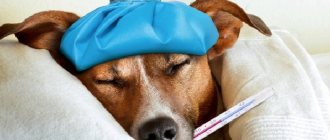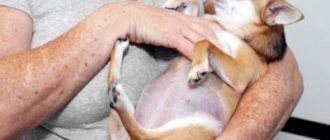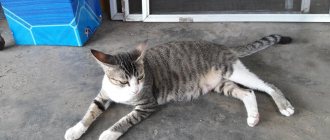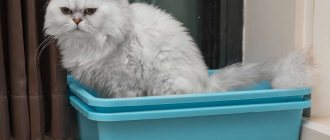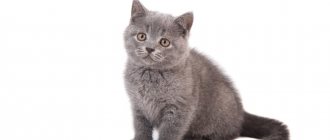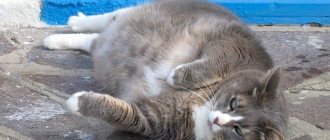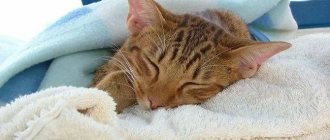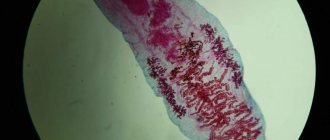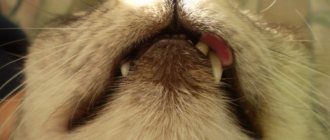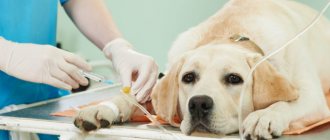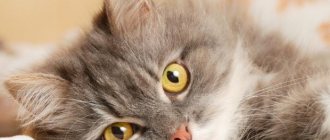If a cat that is expecting a litter becomes unwell, it causes great anxiety in the owner. Diarrhea in a cat before birth may be a symptom of its onset or a sign of a serious illness. It is important to know what factors can provoke stool disorder in a cat in order to provide timely assistance to the animal.
Diarrhea in a pregnant cat: what to do?
You need to approach pregnancy planning for your cat responsibly. Go to the veterinarian for an examination in advance , get vaccinations, prevent parasites, and choose a worthy healthy candidate to be the father of future kittens. All these precautions are necessary so that during pregnancy no disease takes over the cat’s sensitive body. But no matter how hard the owners try to protect their pet, diarrhea in a pregnant cat still happens.
If the pregnancy was not planned, there may be plenty of reasons for diarrhea. This seemingly simple symptom should be taken seriously. Diarrhea in a pregnant cat can trigger premature birth at any stage. To keep your kittens alive and your pet healthy, carefully monitor her diet and well-being.
Since the cat’s body becomes very sensitive, it needs to be fed only with its usual food . Changing food or inappropriate treats, such as milk or raw foods, can cause diarrhea in a pregnant cat. If this happens, give your cat some rice water. Pour 10 ml from a syringe without a needle into her mouth. Usually one or two doses are enough to normalize stool.
Another cause of diarrhea in a pregnant cat can be stress . You should not take your cat anywhere or have noisy parties at home. The visit of other animals to your home can also be perceived negatively by the cat.
In rare cases, diarrhea during pregnancy in a cat may be due to hormonal changes . Veterinarians cannot fully explain this phenomenon, especially since it occurs quite rarely, usually a few days before birth.
Diarrhea in a nursing cat is quite common. And the reason for this is not only in improper feeding, but also in the fact that the mother carefully licks her kittens and all their waste products. When the kittens grow up and start going to the litter box, the mother's frustration will end. But this does not mean that diarrhea does not need to be dealt with. Prolonged diarrhea in a nursing cat can lead to intestinal inflammation due to weakened immunity.
If the general condition of the cat is good, you can give it a sorbent (activated carbon, enterosgel, enterol), rice water, probiotics (bifidumbacterin, etc.). If there are no changes, then it is necessary to submit feces for analysis. If diarrhea is accompanied by vomiting, it makes sense to consult a doctor immediately. The causes of diarrhea can be very varied. And treatment is significantly complicated by the delicate situation. You can only make a decision about changing food for a pregnant or lactating cat together with a veterinarian .
In rare cases, diarrhea during pregnancy in a cat may be due to hormonal changes . Veterinarians cannot fully explain this phenomenon, especially since it occurs quite rarely, usually a few days before birth.
Early birth
Diarrhea in a cat before giving birth, especially a few days before the start of the process, may be evidence of the body's preparation . The absence of other signs of possible poisoning or infection indicates the beginning of the labor process. Before the birth itself, the body begins to prepare and cleanse itself in advance.
Physiological diarrhea is due to the fact that two weeks before the onset of labor, kittens begin to move closer to the exit, the uterus stops putting so much pressure on internal organs located high up - the lungs, stomach. But the pressure of the grown uterus on the lower intestines, on the contrary, increases. Don’t worry if your cat has diarrhea several times without affecting its general well-being. At the discretion of the specialist, the animal may be placed on a special therapeutic diet. In addition, solutions of glucose and phthalosol can be prescribed. You can use folk healing recipes - a decoction of chokeberry, oak bark, pomegranate skins and rice.
A rise in high temperatures, frequent diarrhea, and the appearance of increased weakness in a cat are extremely dangerous for a pregnant animal, often leading to premature birth and non-viable offspring if not treated in a timely manner.
Topic: Diarrhea and vomiting in a pregnant cat, what to do
Click on us, we have thousands of instructions among them for immediate viewing on the topic of diarrhea and vomiting in a pregnant cat, what to do from the user Terenty: legal video.
We give only the correct answer to the question. After viewing, you will not need to seek help from specialists. Detailed instructions will help you solve your problems. Have a nice watching.
Below watch the video about what to do about diarrhea and vomiting in a pregnant cat and express your opinion about it in the reviews of the article.
Video Quality: Blu-Ray
Humor on topic: Learning to program in 21 days is very simple. It's like turning the hands of a clock. Sunny. Across the road. To Portuguese.
Below watch the video about what to do about diarrhea and vomiting in a pregnant cat and express your opinion about it in the reviews of the article.
Causes of diarrhea
Pregnant cats are susceptible to various viruses and bacteria, which can lead to intestinal dysfunction. The most common causes of intestinal upset are:
- Food intolerance. Pregnancy is not the time to experiment with a new diet. Sometimes even familiar foods can give an unpredictable reaction from your pet. Most often, this reaction is observed to the following type of food: milk and dairy products, beef, horse meat, soy, fatty fish, chicken eggs. The body of an animal in an interesting situation often gives an allergic reaction to a previously well-tolerated food, which is manifested by diarrhea.
- Very often, a pet expecting a replenishment constantly feels hungry and, if you follow her lead, this can lead to the development of diarrhea. This occurs due to the fact that a large volume of food moves rapidly through the intestines and is not absorbed into the circulatory system. Thanks to this process, the feed enters the intestines in a liquefied state. This type of diarrhea occurs once. In this case, it is necessary to reduce the pet’s portion.
- If a cat is walking on the street, then she may well pick up something from a garbage container or eat a sick rodent.
- If a cat has not undergone a parasite removal procedure before mating, then worms can cause her to feel unwell. In this case, there is blood and mucus in the loose stool.
- If the pet was sick and was treated with medications, then drug resistance may occur; antibiotics often give such a reaction.
- In long-haired cats, a similar reaction can develop when hair gets into the digestive tract.
- If your pet has not been vaccinated against diseases such as enteritis or distemper, then pregnancy is the most susceptible time for the occurrence of infectious diseases. In this case, in addition to diarrhea, the animal develops fever and vomiting. If such symptoms are detected, you need to urgently contact a veterinarian, otherwise there is a risk of losing the cat and offspring.
- Stress can also cause loose stools; it is better to limit a pregnant cat from visiting guests or traveling on public transport.
- Another reason is hormonal changes in the body.
- If in the early stages the animal has loose stools, then this is a reason for an urgent visit to the veterinary clinic. Because there is a high risk of miscarriage.
We recommend reading: Sudden Muscle Contraction in Dogs
Diarrhea 2 days before lambing is normal and should not cause concern to the owner. If your pet is calm and, in addition to loose stools, does not experience vomiting or fever, then there is no reason to worry. Soon we can expect the replenishment of the long-awaited offspring.
Some cat breeds, such as Devon Rex or Sphynx, react most acutely to any change in diet by producing loose stools.
Predisposing factors
A very common cause of “liquefied” feces in cats is a common eating disorder. This is especially true when the pet is fed... milk! Yes, yes, it is (in most cases) even harmful to cats, since the body of an adult animal, in principle, does not digest this product. Moreover, lactose intolerance is the “calling card” of almost all representatives of the cat family.
What happens when a cat drinks milk? Nothing good: since the animal’s digestive tract lacks the enzymes necessary to digest its components, the product begins to curdle. Soon the lumps of former milk begin to simply rot. When they enter the intestines, rich in microflora, from the stomach, the process accelerates several times. This doesn't lead to anything good.
In short, we would not recommend feeding a pregnant cat milk. Yes, it contains a lot of calcium, which is so necessary for future kittens, but the mother’s body still cannot absorb it. If there is such a need, it is better to compensate for its deficiency with the help of multivitamin preparations recommended by veterinarians. Of course, the list of all possible reasons is much longer:
- Food allergies and intolerance to some feed components.
- Parasitic and helminthic infestations .
- Malignant and benign tumors in the intestinal lumen.
- Viral, fungal or bacterial infections .
Separately, I would like to dwell on the quality of feed received by the animals. Believe me, the cat's body is very sensitive to poor nutrition! Never feed your pet stale food from the refrigerator. Such a diet will not only lead to diarrhea, but can subsequently cause, for example, cancer of the gastrointestinal tract.
If a pregnant cat has diarrhea in the later stages (or in the early stages, which is even worse) regularly, you need to consult a veterinarian, since this no longer looks like a normal digestive disorder.
Viral infections
Cats are susceptible to many viral infections. And almost all of them are accompanied by the development, including severe diarrhea.
The most common pathologies are:
- Feline panleukopenia (also called feline distemper).
- Leukemia (FeLV).
- Feline immunodeficiency virus (FIV).
- Feline coronavirus.
- Infectious peritonitis (FIP).
Treatment of a pregnant cat
Diarrhea in a pregnant cat should only be treated by a veterinarian, since loose stools can cause serious health problems not only for the expectant mother, but also for her offspring. The doctor must be warned that the pet is pregnant. To prevent the cat from having problems later, she must be prepared for a future pregnancy. To do this, you need to: first deworm the animal, treat it for fleas, feed it in accordance with the recommended diet developed for cats in an interesting situation. To prevent your cat from contracting infectious diseases during an important period of life, you need to get all vaccinations in advance.
A pregnant cat should not be given medications on its own; this can significantly worsen its condition.
If she has a mild case, you can try giving her water or water with dissolved glucose. When a pet refuses to drink, it should be fed through a syringe. You can try drinking it with powder from chicken stomachs. A good fixing effect is given by decoctions of pomegranate skins, oak bark, and chokeberry.
Diet food
If a pregnant cat is susceptible to diarrhea, then it is necessary to adhere to a special diet:
- Firstly, for the first time it is necessary to exclude dairy products.
- It is necessary to limit the consumption of foods containing large amounts of carbohydrates.
- The cat needs to be fed 4-5 times a day, in small portions containing a small amount of fat.
- You can include boiled eggs, rice, boiled white chicken, and chicken broth in your diet.
- You can give baby food that contains meat.
Home treatments
In simple cases, diarrhea can be eliminated at home. To do this, you need to leave your pet on a short starvation diet. Its duration should not exceed 20 hours.
Note! It is contraindicated to give your cat milk or dairy products. During pregnancy, cow's milk can cause serious allergic reactions. You shouldn’t overdo it with rice, as it can have the opposite effect – constipation.
Care must be taken to ensure that your pet does not become dehydrated. The more frequent and serious the disorder, the more fluid is lost by the body. You can find out the onset of dehydration in a simple way - touch your gums with your finger. If they are sticky or even dry, you need to sound the alarm. The health status of pets must be taken seriously, especially if they are expecting offspring. Timely detection of pathological conditions will help save the cat and her kittens.
Rules of conduct for the first day of illness
If your pet has loose stools, you need to provide her with proper first aid and seek help from a veterinarian. The salvation of the expectant mother and her babies depends on how quickly they seek help from a veterinarian. Basic rules of behavior on the first day of illness:
- The cat needs to be put on a starvation diet.
- The animal should always have clean water in the required volume.
- The animal needs to be given activated carbon at the rate of 1 tablet per 10 kg of weight. The tablets are pre-diluted in water and injected with a syringe, from which the needle has previously been removed, into the animal’s mouth. When consuming activated carbon, you need to increase your water intake and reduce the amount of food.
You need to treat a pregnant cat with great attention, and in case of problems with stool, before making decisions, you need to consult a veterinarian, only he will be able to competently help both the expectant mother and her offspring.
Diarrhea 2 days before lambing is normal and should not cause concern to the owner. If your pet is calm and, in addition to loose stools, does not experience vomiting or fever, then there is no reason to worry. Soon we can expect the replenishment of the long-awaited offspring.
Cat behavior before giving birth: signs, symptoms, temperature
When the final stage of pregnancy approaches, the cat feels the approach of labor and special signs appear in its behavior.
The behavior of a cat before giving birth has the following signs, and the onset of labor is predicted by symptoms:
- The cat begins to look for a place to make a “nest” for itself.
- Immediately a couple of days before giving birth, the cat’s appetite begins to decrease, sometimes even to the point of losing it completely.
- Unusual character traits and habits may appear: for example, if a cat has always been independent and not very sociable, then before giving birth she may not leave the owner’s hands. Such sudden changes in habits and behavior are harbingers of an imminent birth.
- The cat becomes restless.
- The cat's mammary glands swell and increase in size.
If such signs of an approaching birth become noticeable, you should prepare and pay more attention to your pet, monitor how the cat behaves, what it does and how it feels.
It will be useful to read specialized literature or watch videos of cat births.
Main causes of symptoms
Vomiting and diarrhea in your mustachioed pet can be caused by a wide variety of conditions. These include acute poisoning, diseases or chronic processes in the body.
Below are the main reasons why a cat may vomit and vomit:
- Food poisoning, which develops as a result of eating low-quality or spoiled foods. Expired food and rotten meat can cause these symptoms.
- Poisoning by poison. It could be rat poison or chemicals. A cat can become poisoned by eating a mouse.
- Worm infestation. Helminths that parasitize the intestines can cause diarrhea.
- Acute or chronic pancreatitis (inflammation of the pancreas, develops as a result of poor diet). For example, after eating fatty meats or poultry. Pork and rich meat broths are strictly contraindicated for cats.
- Obstruction of the small or large intestine caused by ingestion of a foreign body. This could be a toy, a bag, an ear stick, cotton wool, etc.
- Oncological neoplasms, as a result of which severe intoxication develops. Tumors of the digestive tract can cause obstruction.
- Diseases of the digestive system (gastritis, peptic ulcer, colitis).
- Viral diseases in cats can also manifest as stool disturbances, nausea and vomiting.
- Acute renal failure, in which severe intoxication of the body develops.
- In a kitten, diarrhea and vomiting can be provoked by early weaning from breast milk. At one month he still needs breastfeeding, since his digestive system cannot digest food for adult animals. At two months, the kitten can be gradually switched to food.
Please note that occasional vomiting is normal for cats. With the help of vomiting, cats cleanse their stomachs of hair swallowed while washing. This process does not pose a risk to the health of the animal.
When to Call the Veterinarian
The occurrence of diarrhea in a pregnant cat in the last stages of gestation can be observed for a number of reasons, among which chronic diseases that were not initially treated often appear. Against the backdrop of increased stress on the body due to pregnancy, the body begins to fail, and ailments such as:
- diabetes;
- inflammation of the intestine of an idiopathic nature;
- pancreatic insufficiency;
- increased production of thyroid hormones;
- irritation in the large intestine; diseases of the liver and kidney structures.
It is necessary to call a veterinarian at home or take your cat to the clinic if the following characteristic symptoms of pathological conditions occur:
- the occurrence of febrile phenomena;
- abdominal pain when palpating the abdomen;
- the presence of blood fractions and clots in the feces;
- indifference to what is happening around;
- sudden weight loss;
- signs of dehydration;
- refusal to eat for a long period;
- fetid odor of feces of a putrid nature.
What to do if cats develop diarrhea and vomiting
Treating your pets yourself is dangerous. Without finding out the exact cause of the development of diarrhea and vomiting, it is impossible to determine how to treat the animal.
Remember that it is prohibited to prescribe or give medications to cats yourself! Not all human medicines are approved for them.
If vomiting or diarrhea occurs, you should take your pet to the nearest veterinary clinic as quickly as possible, especially if you suspect poisoning from a toxic substance.
We recommend reading: How to Make a House for a Cat
If symptoms develop at night and you are unable to immediately take your pet to a hospital, begin to treat him yourself. This cannot replace a trip to the veterinarian; you should still contact him as soon as the veterinary clinic opens.
Before going to the vet you should:
- Remove all food bowls. When vomiting, the animal is hungry. Since you don't know what exactly caused the symptoms, don't risk feeding him.
- Try to provoke a gag reflex in the cat. To do this, you can quickly inject 10-15 ml of water into her mouth from a syringe (without a needle), and then press with your finger on the root of the tongue.
- Give your cat an enema with plain water. To carry it out you will need a small bulb with a volume of 50 ml. The enema can be repeated several times until clear water appears. Please note that no herbs or medications should be added to the enema!
- Give your cat activated charcoal. For a kitten you will need a quarter of the tablet, for an adult cat - half. Crush the required portion of the tablet and mix with 5 ml of water. Then let the cat drink this sorbent water through a syringe.
There is nothing more you can do to help your pet on your own. Take him to the vet as soon as possible.
How to Determine the Cause of Your Symptoms
You should describe in detail to the veterinarian the symptoms that your cat has had, its diet over the past few days, and the amount of care that you yourself provided to your animal at home. The doctor will examine the cat, determine its pulse, blood pressure, and body temperature. To establish an accurate diagnosis and begin etiological treatment, a detailed examination of the animal may be required, which consists of a number of diagnostic techniques described below.
- General detailed blood test. This study allows us to identify the following pathologies:
- presence of helminths (worms);
- bacterial or viral infection;
- oncological process in the body;
- anemia.
- A general urine test that will help identify kidney damage.
- Analysis of stool for worm eggs.
- Biochemical blood test, which is necessary to determine the condition of the kidneys, pancreas and liver.
- Ultrasound examination (ultrasound) of internal organs is carried out to diagnose pancreatitis, hepatitis, gallbladder pathology and kidney diseases.
- X-ray of the intestines, which is indicated for intestinal obstruction.
Not all veterinary clinics are equipped with X-ray equipment and ultrasound machines. If necessary, your veterinarian may refer you to another clinic for these examinations.
How to prepare for the birth of a cat?
A cat does not need a birthing room like a human, but a special place will have to be arranged. A special box, which you can make yourself or buy at a pet store, is suitable as a “maternity box”. A cardboard box lined with newspapers or an old blanket will do just fine.
If the cat has access to the street, then in the last stages it is better not to let her out in order to prevent birth on the street. Also in the last days it is worth ensuring peace, absence of noise and other irritants and monitoring whether the animal’s condition changes.
In case complications arise during childbirth, it is better to prepare some supplies in advance; here is the necessary list:
- Any antiseptic
- Towels
- Treated scissors
- Pipette
- Sterile medical gloves
- Veterinarian phone number
The veterinarian should be chosen taking into account the possibility of a house call and preferably around the clock, because labor can begin at any moment. If it is not possible to call a veterinarian in a given locality, you can consult by telephone and follow the doctor’s instructions.
What is the treatment for vomiting and diarrhea?
After determining the cause of the symptoms, the veterinarian will prescribe treatment. Depending on the cause of the disease, it can be surgical or medical.
The operation is indicated for:
- intestinal obstruction;
- malignant neoplasm.
In all other situations, conservative treatment is carried out. If the animal is in serious condition, it can be left at the veterinary clinic for an inpatient stay; if the condition is stable, the doctor prescribes treatment and tells how often the cat should be brought to the clinic for injections and drips.
During treatment, the cat is prescribed a strict diet. Premium medicinal feeds (Royal, Hills, Advance) are best suited for animal nutrition. If the owners cannot afford such food, the doctor prescribes the permitted foods for them. As a rule, boiled twisted chicken fillet and oatmeal are prescribed.
At the clinic, the animal is given intravenous drips through which medications and solutions are administered to prevent dehydration.
At home, the animal needs to be actively watered. The optimal volume of fluid for a cat on the first day after vomiting and diarrhea is 5 ml every hour.
Vomiting and diarrhea in a cat can be symptoms of acute poisoning, intestinal obstruction, worms or diseases of internal organs, cancer. Treatment is carried out by a veterinarian after a detailed examination and examination of the animal. It can be surgical or conservative. Self-medicating a cat with diarrhea and vomiting can lead to death.
Below are the main reasons why a cat may vomit and vomit:
